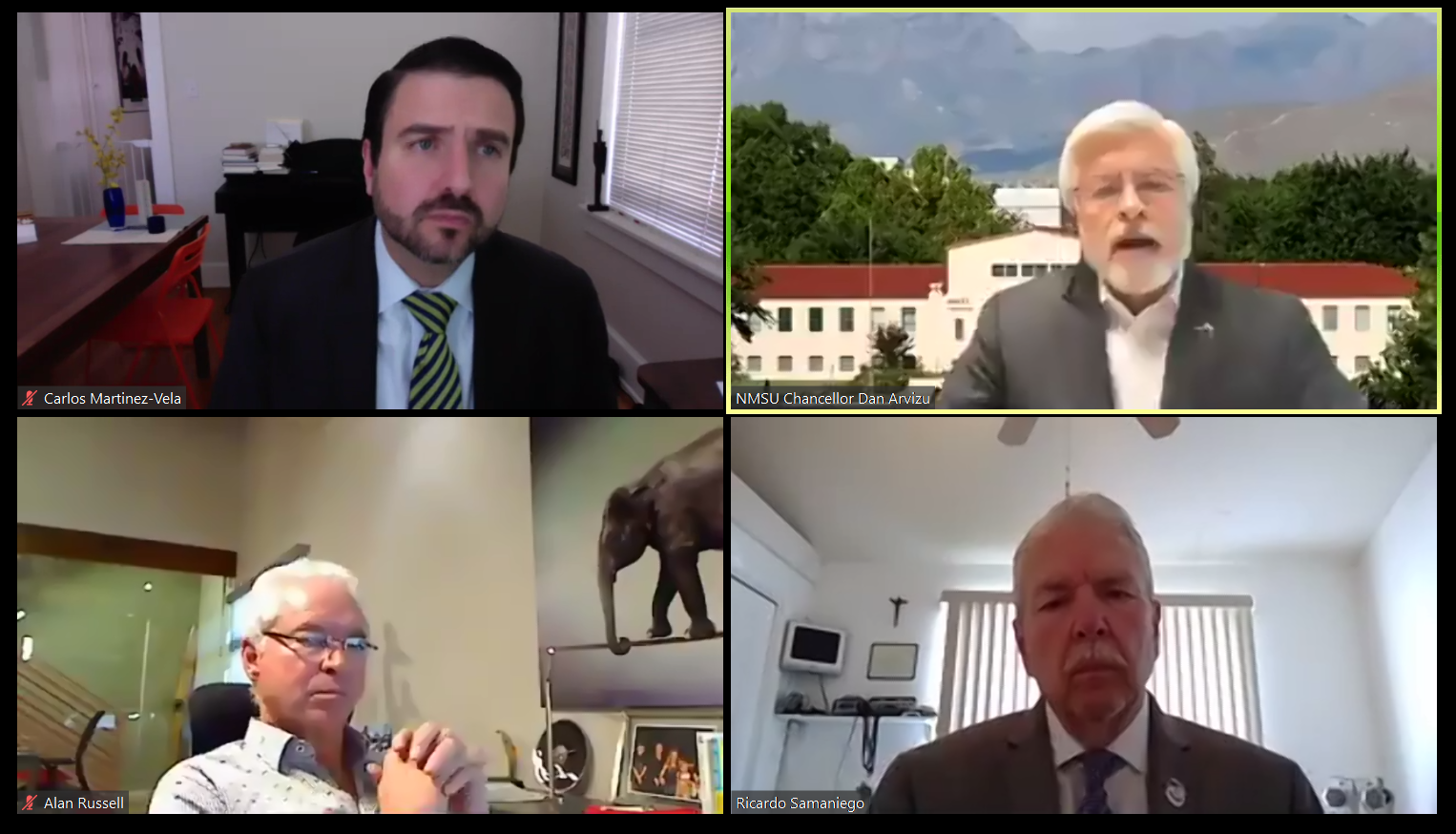On Wednesday April 22 at 11am, the first Regional Community Conversations took place.
The event was possible thanks to Technology HUB; New Mexico State University (NMSU) / Arrowhead Center; PIONEERS 21; and the Medical Center of the Americas Foundation.
The event had the participation of doctor Dan Arvizu, Chancellor of the NMSU; Alan Russell, president and CEO of Tecma; and Ricardo Samaniego, El Paso County Judge.
Close to 200 people connected to listen and join the discussion with questions.
During this online event, innovative strategies were presented inside the Borderplex region (three cities, three estates, 2 countries) to respond the Covid-19 crisis.
In his participation, judge Ricardo Samaniego shared his reflection about the lessons learned as a community during these trying times. He commented that it was necessary to understand each other as a society so that Academia, private sector, government and the civil community could work together inside the jurisdiction that make up the Borderplex with the objective of reaching the recovery of all the region.
 Photo by: HUBmedia
Photo by: HUBmedia
Dan Arvizu commented about the actions taken by the university to fulfill the three principles of the Academia: security for students and personnel; to educate; and to look towards the future with the lessons learned from this situation.
It was necessary to continue classes online to maintain the security of the students and teachers.
Alan Russell shared data about the industry in the region and the safety measures that Tecma adopted to maintain their collaborators safe and the economy afloat. For instance, taking temperature, wearing a face mask and maintaining safe distance.
300 thousand people worked at the maquila industry before the pandemic, now only 150 thousand do.
Likewise, he commented that Mexico must be synchronized with the industry in the United States that’s still operating, because, if not done this way, the US industry could look for suppliers in other countries. This would cause a strong economic impact for the region, since he assured that we’re talking about 20% of the Industry.
Next Wednesday 29, we’ll have the participation of other speakers that without a doubt will leave us with a lot to think and will help maintain the dialogue to go on forward.
Follow us on our social media so you find out ahead of time!
